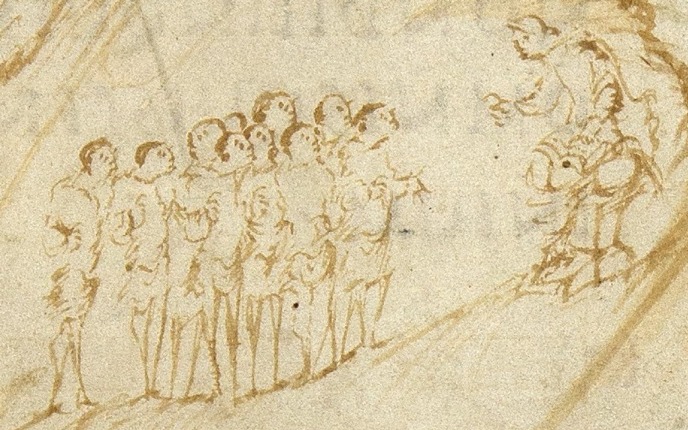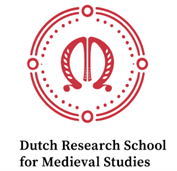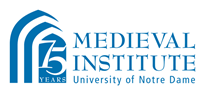Schools in Transition

How did early monasticism transform, adopt, and adapt patterns of schooling in the ancient world? How was it innovative in its approach to education?
This interdisciplinary and international summer school introduces students to the study of this key transition in Western intellectual and religious history through the study of a broad range of textual and material evidence, current approaches to situational learning, and results in the study of early Western monasticism.
Comparison with the contemporary institution of the Late Antique school introduces students to the cultural and social worlds in which monasticism developed, and prompts reconsideration of continuities and discontinuities between these two institutions of formation.
The school’s research-based approach introduces the structures, resources, ritual practices, disciplinary programs, textual practices, materials (including manuscripts), and spaces of situated learning. Through expert-led tours of the Vatican Library, late antique sites of Rome, and the Abbey of Montecassino, students gain on-site experience of sources and sites important their own research. Time is provided for participants to undertake their own research while in Rome.
The school, which is offered through the Dutch Research School of Medieval Studies and the University of Groningen Summer Schools, is a collaboration with the students and faculty of the Medieval Institute and the Center for Italian Studies of the University of Notre Dame (USA).
Practical information
|
Dates
|
16 - 22 June 2025
|
|
Location
|
Royal Netherlands Institute in Rome, Italy
|
|
Level
|
(Research) MA/PhD |
|
Fees
|
€ 250 The fee covers tours in Rome, the Vatican Library, Montecassino, the welcome reception, coffee/tea throughout the week. Shared accommodation at the Royal Netherlands Institute in Rome (KNIR) is provided free of charge for students of the Dutch Research School for Medieval Studies, or affiliated with partner universities of the KNIR: Universiteit van Amsterdam, Rijksuniversiteit Groningen, Universiteit Leiden, Radboud Universiteit Nijmegen, Universiteit Utrecht, Vrije Universiteit Amsterdam. This accommodation includes kitchen facilities.
Other students (including international students) are very welcome. They will need to find their own accommodation however. |
|
Academic coordinators
|
Dr Andrew J. M. Irving (University of Groningen) |
|
Contact |
Dr Andrew J. M. Irving |
Requirements
The school is designed for PhD researchers, and MA students. It is explicitly interdisciplinary: medieval studies, history, classics and philology, manuscript studies, religious studies and theology, history of architecture/archaeology, or with an interest in the history of schooling and/or monasticism.
It is expected that the participants have a sufficient command of the English language to actively participate in the discussions and to present their own work in English.
Course schedule
The summer school comprises a mix of expert-lectures, brief research presentations, site-specific tours (Rome, Vatican Library, Abbey of Montecassino), and workshops.
Topics include: foundational texts and manuscripts, in late antique-early medieval schooling; liturgy and the monastic school; the spaces of learning in the city of Rome and in the early medieval monastery; discipline.
A wide variety of approaches to research in the field is introduced through the multi-disciplinary team of lecturers: history of education; liturgical studies; classics and philology; architectural and art history; religious and monastic history; manuscript studies.
Hand-on opportunities for exploring important sites are provided with tours of Late Antique and early medieval Rome, the Vatican Library, and the Abbey of Montecassino. Time is left free for students to conduct their own research while in Rome. Students are provided an opportunity present their own research projects, and to workshop a research question.
Learning outcomes
After this course you will be able to:
1. Identify key concepts, texts, and figures in transitions in schooling in Late Antiquity and the early Middle Ages
2. Critically situate scholarship on schooling and early monasticism in historical scholarship
3. Identify and evaluate shifting spatial pratices in situated learning in the period
4. Identity and apply at least one methodoly/approach outside their home discipline to their own research agenda in the field
5. Identify and apply at least one new theoretical approach to the study of situated learning in the period.
Workload
-
Preparation: 40 hours
-
Lectures, presentations, and tours: 56 hours
-
Short paper: 44 hours
Upon successful completion of the programme, the Summer School offers a Certificate of Attendance that mentions the workload of 140 hours (28 hours corresponds to 1 ECTS). Students can apply for recognition of these credits to the relevant authorities in their home institutions, therefore the final decision on awarding credits is at the discretion of their home institutions. We will be happy to provide any necessary information that might be requested in addition to the certificate of attendance.
Application procedure
To apply, kindly fill out the online application form. Please note that you will be asked to upload the following documents:
- Curriculum Vitae (max. 2 pages)
- Motivation letter, clearly stating why you want to join this summer school, what you will bring to the school and what you hope to learn (max. 1 page)
The deadline for application is 21 March 2025. Selected applicants will be informed by 4 April 2025.
Selection takes place after deadline. Depending on availability late admissions may be possible upon request. Note: accommodation for eligible students of Dutch Universities (only) at the Royal Netherlands Institute in Rome is limited.
The programme is offered as part of the national Dutch Research School for Medieval Studies (Onderzoekschool Mediëvistiek); members of other Dutch national Research Schools are therefore eligible participants.




| Last modified: | 10 February 2025 1.20 p.m. |
